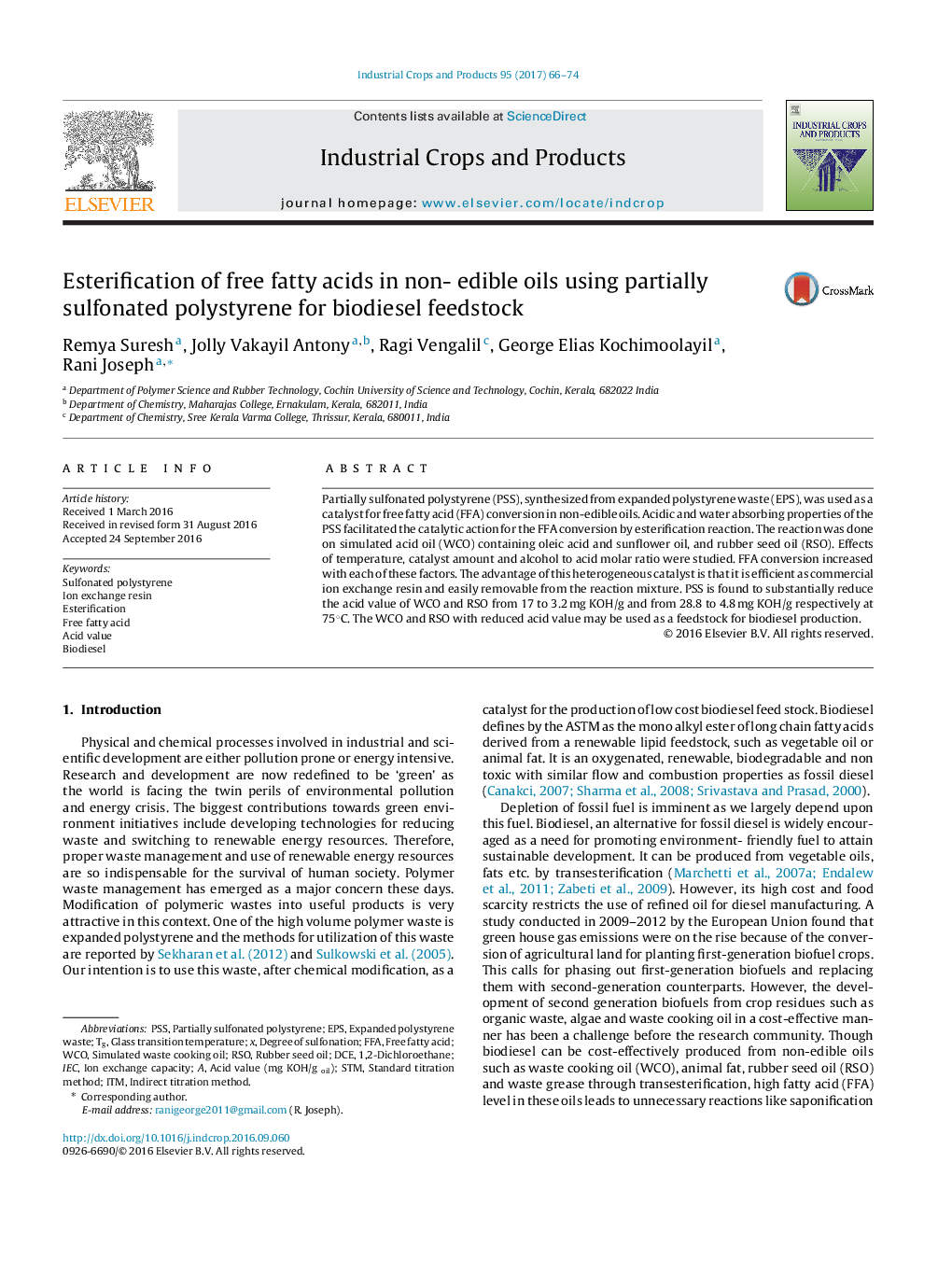| Article ID | Journal | Published Year | Pages | File Type |
|---|---|---|---|---|
| 4511945 | Industrial Crops and Products | 2017 | 9 Pages |
•Expanded polystyrene (EPS) waste is used for the preparation of partially sulfonated polystyrene (PSS).•PSS is used as catalyst in free fatty acid conversion for the biodiesel production.•Acidic and water absorbing property of PSS facilitates its catalytic activity.•Ion exchange resin synthesized from the polymer waste and its application as catalyst in FFA conversion is reporting for the first time.•Utilization of non edible oils like waste cooking oil and Rubber seed oil for the preparation of bio-diesel feed stock.
Partially sulfonated polystyrene (PSS), synthesized from expanded polystyrene waste (EPS), was used as a catalyst for free fatty acid (FFA) conversion in non-edible oils. Acidic and water absorbing properties of the PSS facilitated the catalytic action for the FFA conversion by esterification reaction. The reaction was done on simulated acid oil (WCO) containing oleic acid and sunflower oil, and rubber seed oil (RSO). Effects of temperature, catalyst amount and alcohol to acid molar ratio were studied. FFA conversion increased with each of these factors. The advantage of this heterogeneous catalyst is that it is efficient as commercial ion exchange resin and easily removable from the reaction mixture. PSS is found to substantially reduce the acid value of WCO and RSO from 17 to 3.2 mg KOH/g and from 28.8 to 4.8 mg KOH/g respectively at 75°C. The WCO and RSO with reduced acid value may be used as a feedstock for biodiesel production.
